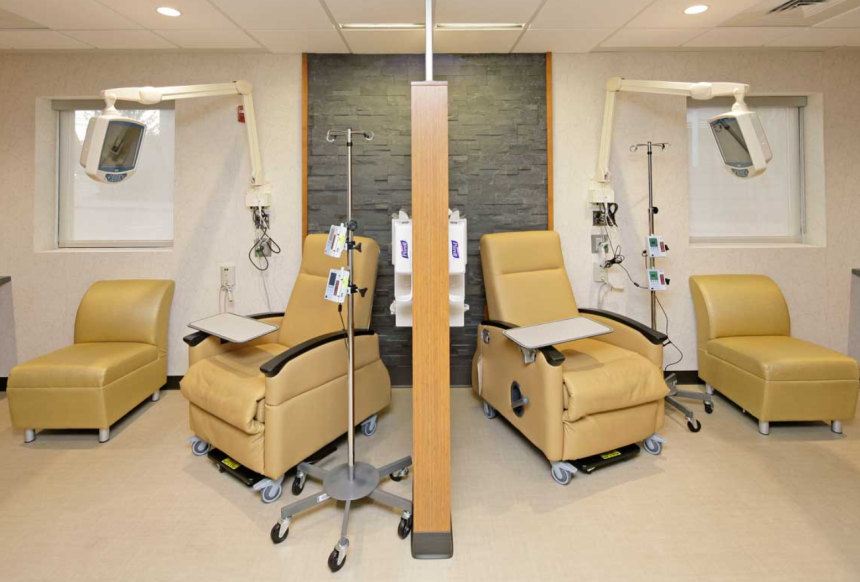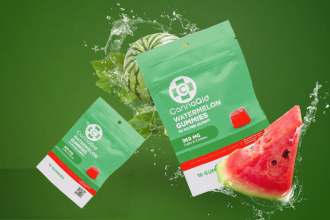The Essence of Infusion Centers
Infusion centers have become an integral part of modern healthcare, providing targeted therapies for patients with various conditions. With the rise of personalized medicine, these centers are perfectly positioned to offer treatments tailored to individual needs. Diseases such as multiple sclerosis, Crohn’s disease, and certain forms of cancer require prolonged and consistent treatment sessions, and these centers offer a more convenient and cost-effective alternative to hospital-based infusions.
- The Essence of Infusion Centers
- The Delicate Balance: Safety and Efficiency
- The Digital Revolution in Medical Deliveries
- Broadening Horizons: From Organs to Clinical Trial Materials
- The Critical Role of Recurring Deliveries
- The Significance of Scheduled and Route Deliveries
- The Expanding Ecosystem: More Than Just Hospitals
- Looking Ahead: The Future of Medical Deliveries
Patients benefit from receiving their therapies in a calm, controlled, and specialized environment. The added convenience of easy scheduling and lesser wait times have made these centers a preferred choice for many. Additionally, these establishments often house expert medical personnel with specialized knowledge in infusion therapies. With an emphasis on patient comfort and safety, infusion centers present a paradigm shift in how care is delivered.
The success of infusion centers largely hinges on the accuracy and speed of medication deliveries. When it comes to treatments that can’t afford delays, like chemotherapy or immunotherapy, any setback in delivery can have serious implications for patient health. This brings us to the importance of robust, dependable delivery networks that cater specifically to medical needs.
The Delicate Balance: Safety and Efficiency
Ensuring safety in the delivery of medical supplies and treatments is paramount. Unlike other forms of shipment, medical deliveries often carry life-saving treatments, demanding a level of caution and urgency that’s unparalleled. From the correct handling of sensitive materials to ensuring that shipments are kept at the necessary temperatures, the stakes are incredibly high.
Technology has played a significant role in upping the safety ante. Advanced tracking systems allow for real-time monitoring of deliveries, ensuring that they’re on track and handled with care. Besides, the packaging technologies have also evolved. Temperature-controlled packaging, for instance, ensures that treatments that need to be kept chilled, like certain vaccines or blood products, maintain their efficacy during transit.
However, while safety is crucial, it can’t come at the expense of efficiency. This is especially true for infusion centers, where timely delivery can mean the difference between effective treatment and missed opportunities. Speedy, punctual delivery services are, therefore, not just a luxury but a necessity.
Given the delicate balance required, many establishments turn to specialized courier services that cater specifically to the medical sector. With their expertise, these services can ensure both safety and efficiency, meeting the stringent demands of medical deliveries.
The Digital Revolution in Medical Deliveries
In our tech-driven world, the healthcare sector hasn’t been left behind. Infusion centers, in their bid to improve patient care, have increasingly embraced digital tools to streamline operations. This digital shift is evident in the realm of deliveries as well.
The rise of on-demand medical courier platforms, like carGO Health, has been a game-changer for many healthcare providers. Such platforms not only simplify order placements but also ensure transparency through real-time order tracking. carGO Health, as a leading name in this sphere, provides a comprehensive history of orders, helping establishments trace and manage their delivery needs with precision.
It’s not just about ease of use. Digital platforms bridge the gap between medical facilities and delivery services, facilitating quicker communication and faster turnaround times. The role of AI and machine learning in predicting delivery routes, analyzing traffic patterns, and ensuring timely deliveries can’t be understated.
But perhaps the most significant advantage lies in flexibility. Whether it’s on-demand delivery for urgent needs, recurring deliveries for consistent treatments, or scheduled deliveries for future requirements, digital platforms cater to a broad spectrum of needs, ensuring that infusion centers can operate seamlessly.
Broadening Horizons: From Organs to Clinical Trial Materials
Medical deliveries encompass a wide variety of items. It’s not just about medication. Organs, tissues, blood products, clinical trial materials, and even medical supplies form part of this vast category. The requirements for transporting a kidney for transplantation are vastly different from delivering clinical trial materials for a new drug.
Organs and tissues, for instance, are time-sensitive. The window for successful transplantation is narrow, requiring swift and secure transportation. Any delay could render the organ unusable, putting patient lives at risk. In such scenarios, the speed of delivery is just as crucial as the safety of the package.
On the other hand, clinical trial materials demand rigorous tracking and documentation. Given the regulatory landscape surrounding clinical trials, ensuring that the materials reach their destination in pristine condition is vital. Moreover, accurate documentation ensures that the integrity of the trial remains uncompromised.
Blood products, used both in treatments and for research, have their own set of requirements. Proper temperature control, sterile packaging, and rapid deliveries are crucial. The same goes for medical supplies, especially those used in surgeries or other critical procedures.
The Critical Role of Recurring Deliveries
For infusion centers, recurring deliveries form the backbone of their operations. Treatments like chemotherapy or immunotherapy often require multiple sessions spread over weeks or even months. Ensuring that the necessary drugs are available for each session is, therefore, of paramount importance.
Recurring deliveries offer multiple advantages. Firstly, they streamline the procurement process, ensuring that stocks are replenished well in advance of the treatment sessions. This minimizes the chances of shortages, ensuring uninterrupted care for patients.
Moreover, with recurring deliveries, infusion centers can benefit from consistent pricing, avoiding the fluctuations that often come with one-off purchases. It also allows for better financial planning and budget allocation, ensuring that resources are used optimally.
On the delivery side, recurring schedules ensure better route planning, leading to fuel and time savings. Regular routes also mean that drivers become familiar with the specific needs and preferences of the infusion centers, leading to improved service over time.
The Significance of Scheduled and Route Deliveries
Beyond immediate and recurring delivery needs, infusion centers often rely on scheduled and route deliveries for their operations. Scheduled deliveries, set for future dates, allow centers to plan in advance, ensuring that treatments and supplies are available when needed.
Scheduled deliveries, especially for non-urgent supplies, can be optimized for cost savings. By bundling shipments and choosing non-peak delivery times, infusion centers can often avail of better rates. It also provides a level of predictability, ensuring that the center’s operations run smoothly.
Route deliveries, on the other hand, involve a series of stops in a specific sequence. This can be particularly useful for larger healthcare networks, where supplies need to be distributed across multiple locations. Efficient route planning can lead to significant savings in terms of time and fuel.
Moreover, route deliveries ensure consistency. Whether it’s the delivery of medications from a central pharmacy to various clinics or the distribution of supplies, having a fixed route ensures that all locations receive what they need in a timely manner.
The Expanding Ecosystem: More Than Just Hospitals
While hospitals and health systems form a significant chunk of the medical delivery ecosystem, the landscape is far more diverse. Digital and retail pharmacies, dental laboratories, veterinary clinics, homecare setups, fertility clinics, and even blood banks have delivery needs that are just as critical.
Each of these entities has unique requirements. Fertility clinics, for instance, may require the swift and safe transport of embryos, while veterinary clinics might need timely deliveries of specialized medications. The common thread running through all these establishments is the need for reliable, efficient, and safe delivery services.
Digital and retail pharmacies, with their focus on consumer convenience, often require swift deliveries to cater to patient needs. Homecare setups, on the other hand, might need recurring deliveries of specialized equipment or medication for long-term patient care. In the case of blood banks, the rapid and safe transportation of blood products, especially during emergencies, becomes paramount.
These diverse needs highlight the importance of a flexible and versatile delivery ecosystem. One that can cater to a broad range of requirements while maintaining the highest standards of safety and efficiency. As the healthcare sector continues to evolve, the demand for specialized delivery services will only grow, underscoring their pivotal role in patient care.
Looking Ahead: The Future of Medical Deliveries
The world of medical deliveries is in a state of rapid evolution. As technology continues to advance, we can expect even more innovations that will streamline operations, enhance safety, and improve efficiency. From drone deliveries for critical supplies to AI-driven predictive analysis for route optimizations, the horizon looks promising.
In the immediate future, the integration of IoT (Internet of Things) with delivery operations stands out. With IoT-enabled devices, real-time monitoring can extend beyond just tracking the location of the shipment. Parameters like temperature, humidity, and even package integrity can be continuously monitored, ensuring that sensitive shipments like organs or vaccines remain viable throughout their journey.
Another area of growth is the rise of hyper-local delivery networks. These networks, operating within a specific geographical region, can ensure ultra-fast deliveries, sometimes within the hour. For infusion centers and other healthcare setups, this could mean even more flexibility in scheduling treatments, leading to enhanced patient care.
Personalized medicine is also set to influence the delivery landscape. As treatments become more tailored to individual patients, the delivery needs will also become more specific. This will require a level of customization in delivery operations, with services catering to the unique needs of each shipment.
In conclusion, the symbiotic relationship between infusion centers and the world of medical deliveries is evident. As both realms continue to evolve, their intertwined growth will play a significant role in shaping the future of healthcare, promising better outcomes and enhanced patient experiences.














